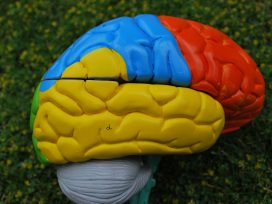
Measures such as ‘ethical AI’ and ‘good data’ will not bring about social justice, end racial capitalism or forestall climate disaster. How to channel discontent and counter-hegemony into an actual transfer of power in the late platform age?

Measures such as ‘ethical AI’ and ‘good data’ will not bring about social justice, end racial capitalism or forestall climate disaster. How to channel discontent and counter-hegemony into an actual transfer of power in the late platform age?
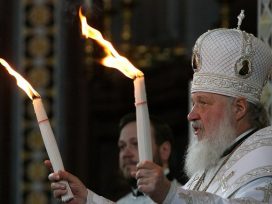
During the Second World War, Pope Pius XII failed to recognize the plight of victims. Today, Russia’s Patriarch Kirill supports the Kremlin’s ‘special military operation’, denouncing liberal rights, especially those of LGBTQ+ communities, and, consequently, Ukraine’s majority Orthodox Christian community.
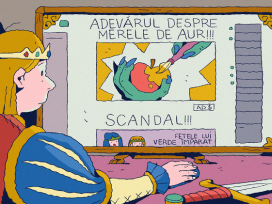
How does disinformation overwrite the imagination and beliefs of those who consume it? With this half-serious programmatic manifesto for a deadly serious issue, Romanian journal Scena9 sets out to explore online fake news and the way it shapes our minds.
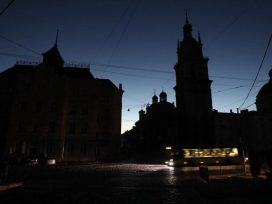
Heating is no longer as simple as flicking a switch: burning fossil fuels is environmentally unsustainable; and, this year, Europe’s reliance on Russian gas, weaponized by the Kremlin, has created a rush for alternatives. In Ukraine, where power facilities are under repeated attack, existing, pre-war energy efficiency plans have become a lifeline.
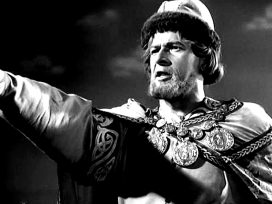
Generations of Russians schooled during and after the Soviet Union were taught that Russia’s imperial expansion took place peacefully. In this version of history, Russia was always reacting to western aggression. Sound familiar?

The effectiveness of Kremlin propaganda is based on a tangled bundle of lies and half-truths. Reality, however, cannot be distorted forever. As Europe needs to bring vision back to politics, can Russians finally emerge from their echo chamber?
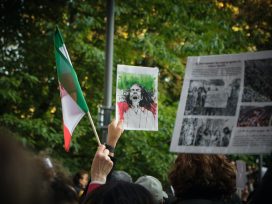
For far too long governments in the West have trusted the Iranian reformers, misunderstanding the nature of power in the Islamic Republic. A Europe committed to human rights and feminist values must stand up for the people of Iran and give them a chance to speak.

In socialist Czechoslovakia, one of the world’s biggest arms exporters, issues of durability and demise were taken into account. Why, then, do Cold War weapons continue to resurface in deadly attacks and armed conflicts across the globe, well beyond their alleged obsolescence?
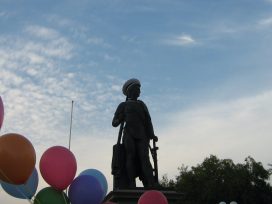
The removal of Potemkin’s remains from St Catherine’s Cathedral in Kherson was not without irony, given the flimsiness of Putin’s version of history. On the meaning of Russia’s macabre new ideology.
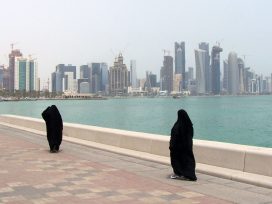
The Qatar World Cup is a vast soft-power operation for the militarily weak, gas-rich emirate. But reforms prompted by international attention – from sustainability to women’s rights and labour conditions – are likely to fade along with the stadia lights.

Russia’s full-scale invasion of Ukraine has revived fears of looming nuclear apocalypse. Amidst weakened institutional frameworks and the great powers’ will to preserve the status quo, the non-proliferation doctrine is under increasing pressure.
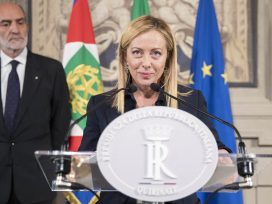
Italy is the cradle of the far-right populism now seen across Europe. A system of perennially instable government engenders a form of politics that exploits Italians’ insecurities and distrust, while grinning all the time.

The red tide never surged but the re-election of numerous brazen careerists and hardline crazies is bad news for the next two years and beyond, particularly since the Democrats have little idea about how to oppose this new breed of politician.
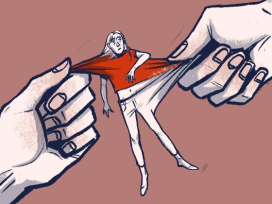
While opportunities to denigrate one’s own physical appearance abound from an early age, eating disorders remain surrounded by stigma and lack an adequate vocabulary. From high school to pandemic isolation, a Romanian woman recounts eight years of grappling with anorexia.

Eurozine has had a very difficult year and is still a way from finding long-term stability. But we’re rebuilding the team and even starting an exciting new youth project. Thankfully, you, our readers, have stuck with us through the thick of it.

Many countries use international TV channels as an instrument of soft power. So why is RT not simply a Russian CNN? On the rise and fall of the self-styled scourge of The West.